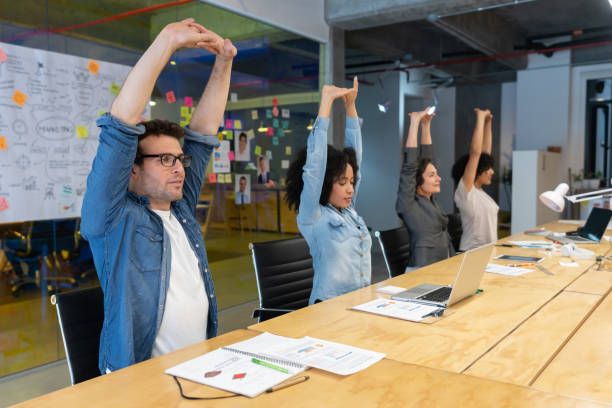
Of the world's population is in work.

Experience a mental health condition in the workplace.

Are lost every year due to depression and anxiety, costing the global economy about US $1 trillion annually.

Affect people aged 15–44 years, the most productive section of the population

From stroke and ischaemic heart disease as a result of working 55 hours or more per week.

Live with a mental health condition at any given time.
Of total societal cost of mental health conditions is driven by indirect costs such as reduced productivity.
Were unemployed in 2022.
It's a false assumption that mental illness is only "caused" by:
Genetic or biological factors | Problems in one’s personal life.
Our Workplaces Affect Our Health.

When workplaces prioritize health and wellbeing, they end up with a healthier, more productive workforce that have:

Our Mental Health Affects our Workplace Too.

Positive mental health can have a strong and wide-ranging impact on the workplace:
There is an increased economic gain, workplace satisfaction, and wellbeing from investing in mental health in the workplace.


Mental Health in General Health Care
Specific Health Programmes
General Hospitals
Primary Health Care
NTD Services
NCD Services
Maternal and child health clinic
HIV/AIDS and TB services
Liaison care
Acute inpatient care
Outpatient care
Medical care
Psychological counselling
Community health work

Mental Health beyond the health sector
Non-Health Settings
Social services
Workplace health services
School health services
Prison health services
Child protection
Soical housing
Employment
Social benefits

Community mental health services
Community mental health centres and teams
psychosocial rehabilitation
peer support services
supported living services
Crisis services
Outreach services
Clinical care and support
Day care
Vocational assistance
Adult learning
Social benefits
Long-stay accommodation
Short-stay accomodation